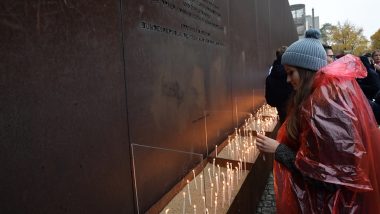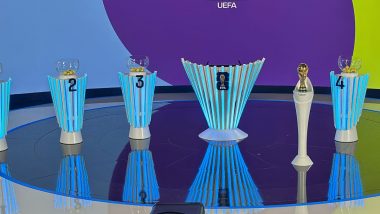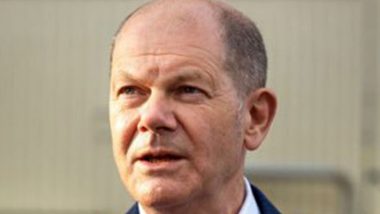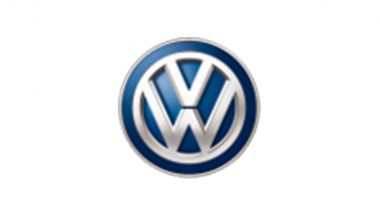Berlin, November 9: Germany on Saturday marks 30 years since the fall of the Berlin Wall that ushered in the end of communism and national reunification, as the Western alliance that helped secure those achievements is riddled with divisions. Two days before the date that brought epochal change, France's President Emmanuel Macron dropped a bombshell, declaring that transatlantic partnership NATO was suffering from "brain death" and that Europe itself was "on the brink".
Chancellor Angela Merkel responded with uncharacteristic sharpness, saying Thursday "I don't think that such sweeping judgements are necessary", and the ensuing storm over NATO laid bare the growing differences among traditional allies. The bad tempered prelude to the festivities stood in sharp contrast to celebrations five years ago, when former Soviet leader Mikhail Gorbachev and ex-Polish president and freedom icon Lech Walesa were present. The Fall of the Berlin Wall 30th Anniversary: What Happened During the Falling of Iron Curtain? Here’s Everything About the Historic Event.
This time, leaders of former Cold War powers will be absent, as Donald Trump's America First policy, Britain's Brexit struggles and Russia's resurgence put a strain on ties. US Secretary of State Mike Pompeo's visit ended Friday while Macron is only planning a flying visit on Sunday, leaving the actual anniversary on November 9 without globally prominent figures.
Pompeo also left behind a stark warning: "As we celebrate, we must also recognise that freedom is never guaranteed. "Today, authoritarianism is once again rising," he said, namechecking China and Russia.
'Naive Complacency'
Carrying a similar message, the EU's incoming chief Ursula von der Leyen noted that the euphoric optimism over liberal democracy and freedom that characterised November 9, 1989 has dissipated. "Today, we have to admit that our complacency was naive," said von der Leyen. Russia is "using violence to shift established borders in Europe, and is trying to fill every vacuum that the US has left behind."
And hopes that China would develop closer to the Western liberal democracy model has not been fulfilled, she said. Mikhail Gorbachev, whose decision not to send the Soviet army to prop up the East German regime was seen as crucial to preserving peace during the Cold War, told Spiegel magazine in an interview that there is "no nostalgia" for that period of division.
But "we have to admit that after the end of the Cold War new leaders failed to create a modern security architecture, especially in Europe." "As a result, new lines of divisions have emerged, and NATO's eastward expansion ... shifted these lines to the Russian border."
'Half a Century'
Beyond the cracks surfacing in the global arena, a new chasm is opening up within Germany itself with the far-right gaining a strong foothold in the former communist states. Underlining the problem herself, Merkel said those who earlier thought the differences between the former communist east and the capitalist west could be ironed out now see "that it would take half a century or more."
Debate has also opened up more intensively over the differences between the east and west as "nationalist and protectionist trends have gained ground worldwide, thereby fuelling more discussion too from a national perspective," Merkel told Sueddeutsche Zeitung. Amid the sombre mood, a serious political programme is planned for Saturday, with central European presidents to headline the official ceremonies.
They will join Merkel and President Frank-Walter Steinmeier to mark their countries' "contribution ... to the peaceful revolution" that led to the collapse of the communist regime. Merkel will speak at the Chapel of Reconciliation, which stands on a stretch of the former wall border strip where local people jumped from windows the day it was built to escape the communist East, while others later dug tunnels towards the West.
Steinmeier will also make a speech at the Brandenburg Gate in the evening, before a series of concerts including one by the prestigious Berlin Philharmonic Orchestra. On November 9, 1989, East German border guards, overwhelmed by large crowds, threw open the gates to West Berlin, allowing free passage for the first time since the wall was built. The momentous event would end up bringing the communist regime crashing down and lead to German reunification a year later.
(The above story first appeared on LatestLY on Nov 09, 2019 07:08 PM IST. For more news and updates on politics, world, sports, entertainment and lifestyle, log on to our website latestly.com).






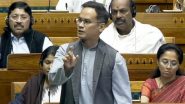


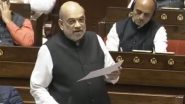



 Quickly
Quickly








